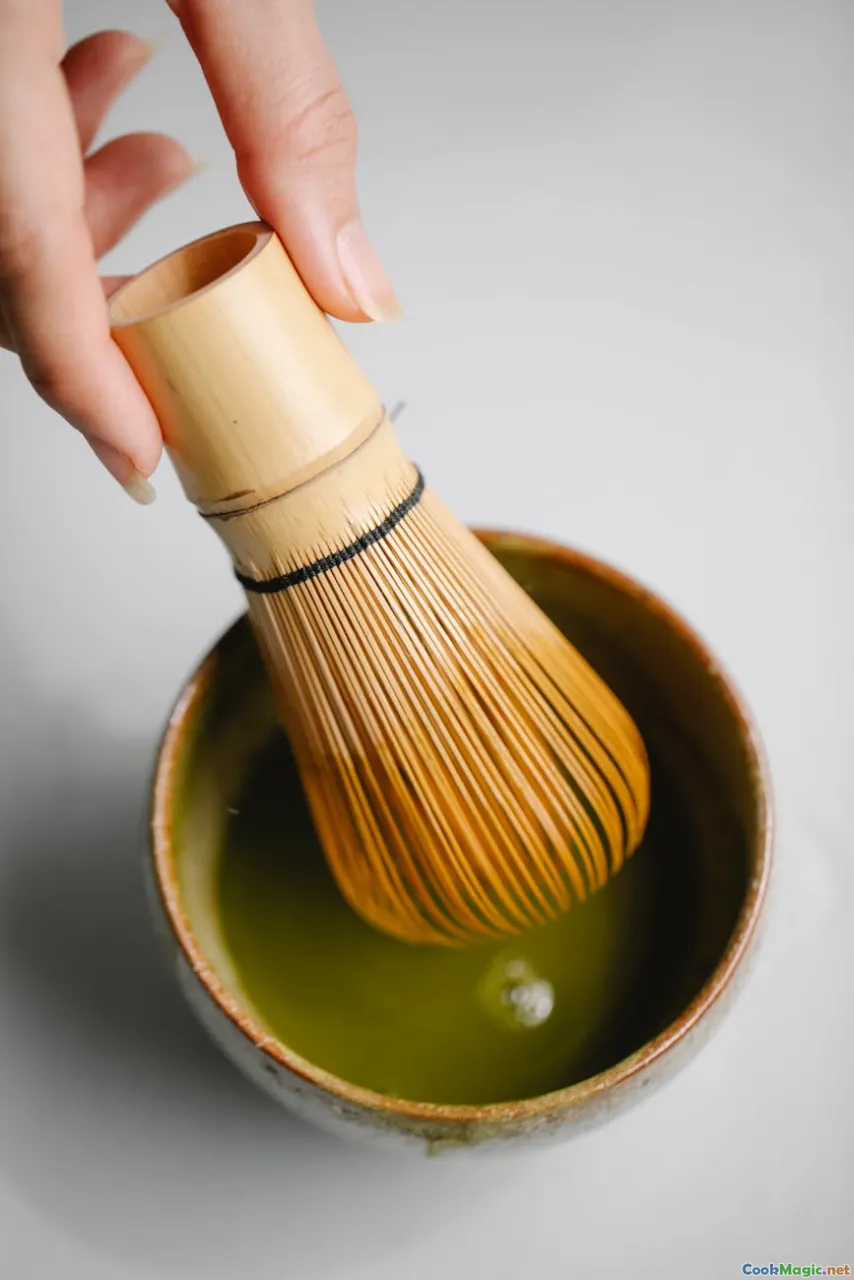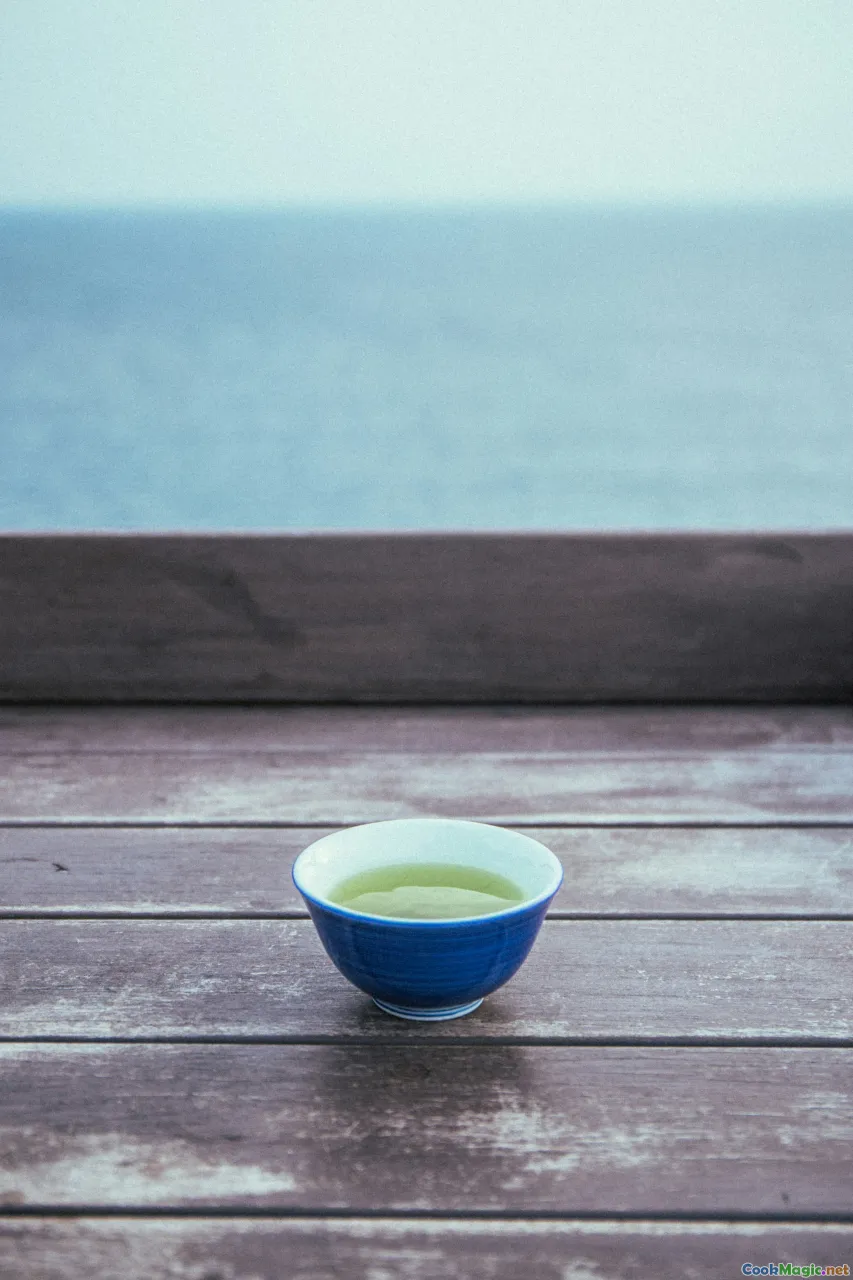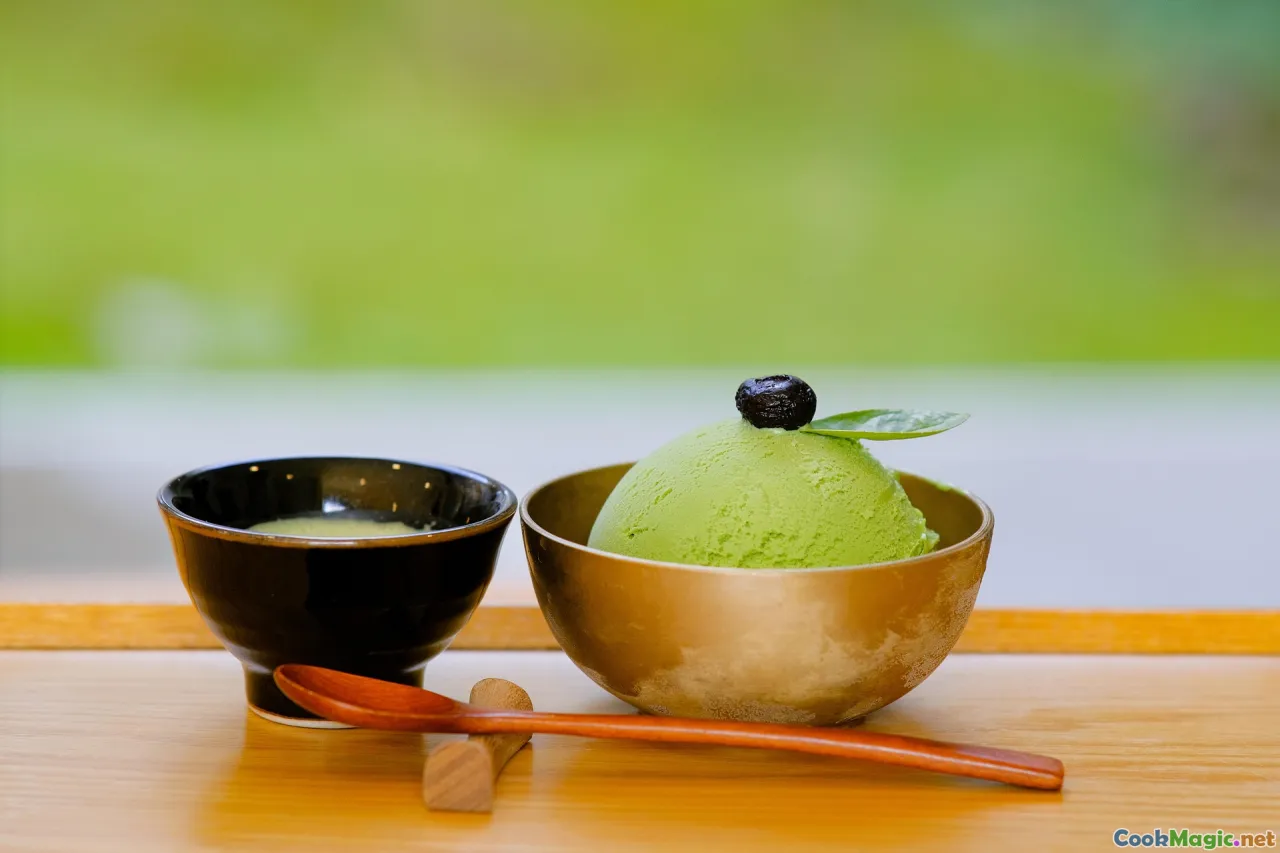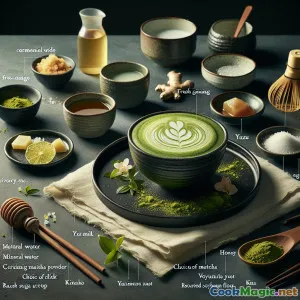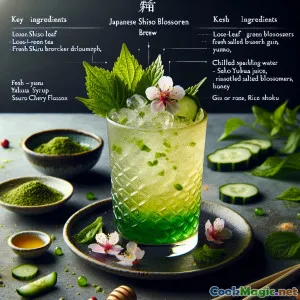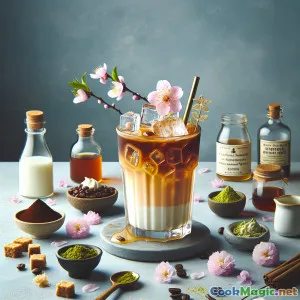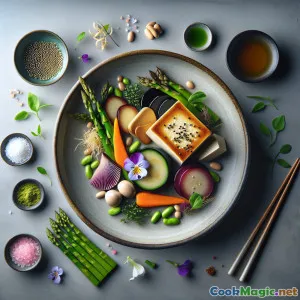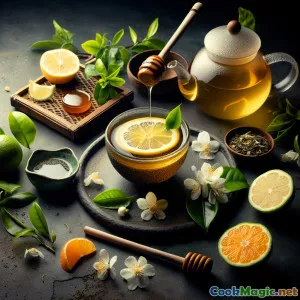
日本柚子禅茶:柑橘和谐灵药
(Japanese Yuzu Zen Tea: Citrus Harmony Elixir)
(0 评论)食材
营养
- 份量: 2
- 每份大小: 1杯(250ml)
- Calories: 40 kcal
- Carbohydrates: 10 g
- Protein: 0.5 g
- Fat: 0 g
- Fiber: 0.3 g
- Sugar: 7 g
- Sodium: 6 mg
- Cholesterol: 0 mg
- Calcium: 11 mg
- Iron: 0.1 mg
制作步骤
-
1 - 加热水:
将过滤后的水加热至刚好接近沸点(约80°C/175°F),以保留细腻的茶香。
-
2 - 泡绿茶:
将散装绿茶(如果使用的话,也加入茉莉花)放入茶壶或滤杯中。倒入热水,浸泡2–3分钟。
-
3 - 准备柚子混合物:
在一个小碗中,将新鲜柚子汁、柚子皮屑(如果使用)和蜂蜜搅拌均匀。
-
4 - 混合并上菜:
将泡好的茶倒入杯中。搅拌入柚子蜂蜜混合物。用额外的柚子皮或一片柚子轮作为芳香点缀。立即享用。
将过滤后的水加热至刚好接近沸点(约80°C/175°F),以保留细腻的茶香。
将散装绿茶(如果使用的话,也加入茉莉花)放入茶壶或滤杯中。倒入热水,浸泡2–3分钟。
在一个小碗中,将新鲜柚子汁、柚子皮屑(如果使用)和蜂蜜搅拌均匀。
将泡好的茶倒入杯中。搅拌入柚子蜂蜜混合物。用额外的柚子皮或一片柚子轮作为芳香点缀。立即享用。
关于 日本柚子禅茶:柑橘和谐灵药 :的更多信息
Japanese Yuzu Zen Tea — A Contemporary Harmony of Flavors
Japanese Yuzu Zen Tea draws inspiration from both traditional Japanese tea ceremonies and the trending enthusiasm for citrus-based wellness beverages. Yuzu, an aromatic Japanese citrus fruit, is justly revered for its vivid fragrance and complex, gently floral notes somewhere between mandarin, lemon, and grapefruit. This recipe unites it with verdant Japanese green tea, whose vegetal, grassy depth is an invitation to pause and reflect.
The Significance of Yuzu and Tea in Japan
Yuzu is integrated into many culinary rituals in Japan—from seasoning ponzu sauce to perfuming winter yuzu baths (yuzuyu) during the winter solstice for luck and wellness. Its inclusion in a tea not only elevates the sensory experience with vibrant aromas but rides a wave of modern Japanese mixology, where tea and citrus infusions create both simple and sophisticated drinks.
Meanwhile, Japanese green tea—from ample sencha to rare gyokuro—acts as both daily drink and ceremonial treasure. Tea culture in Japan is centuries old, associated unmistakably with "ichi-go, ichi-e" philosophy, which emphasizes treasuring each encounter as a once-in-a-lifetime event. Sipping this tea, you intentionally step into that moment.
The Making of Japanese Yuzu Zen Tea
Careful attention should be paid to preparing both tea and yuzu components. Warming water just below boiling ensures the green tea retains its subtle, sweet umami and isn't rendered overly bitter. The addition of jasmine is a modern twist: subtle, soothing, and an aromatic friend to both tea and yuzu—yet entirely optional for purists favoring simplicity. Infusing yuzu juice with raw honey tempers the citrus tang, hinting at Eastern and Western palates alike.
You may wish to try different green teas: delicate gyokuro makes a rarefied, ‘silent’ cup, while sencha provides a punchier base. For the adventurer, genmaicha (green tea with toasted brown rice) lends toasty umami supporting the high floral citrus of yuzu.
Unique Aspects & Personal Tips
- Ingredient Sourcing: While yuzu is becoming more widely available outside Japan, authentic flavor comes wholly from fresh yuzu. In a pinch, a blend of lemon and lime juice, garnished with lemongrass or kaffir lime zest, offers a workable facsimile.
- Sweetness Variations: Raw honey is the healing, golden thread in this recipe, contributing both a natural sweetness and polyphenol boost; yet a classic sugar syrup or agave does the job if you’re vegan or without good honey.
- Wellness Notes: Both green tea and yuzu are packed with antioxidants, Vitamin C, and phosphorus—all good news for a gentle morning boost, a meditative afternoon, or a fluid evening wind-down.
Historical & Modern Context
Bridging Japanese tradition and contemporary wellness culture, this tea introduces non-Japanese drinkers to a ceremonial attitude. In Japan, blending seasonal ingredients—in this case yuzu—is a way to engage directly with the present. This tea is both globally-fused and distinctly ‘of the moment,’ perfect for occurring at gatherings, mindful afternoons, or as a non-alcoholic tribute at hearty meals.
Final Thoughts & Occasions
The Japanese Yuzu Zen Tea promises more than refreshment. Even a single sip reminds you that balance matters—between earthy and bright, sweet and sharp, ancient and new. Consider serving this clear yellow-green beverage in thin porcelain cups, perhaps with a sprig of jasmine or a hastily-cut wheel of yuzu for aromatics. Perfectly suited to mindful mornings, calm reading hours, or with delicate Japanese sweets, it is a delicious excuse for mindfulness, reflection, and reconnection—reuniting you with the fleeting luxury of the now.

